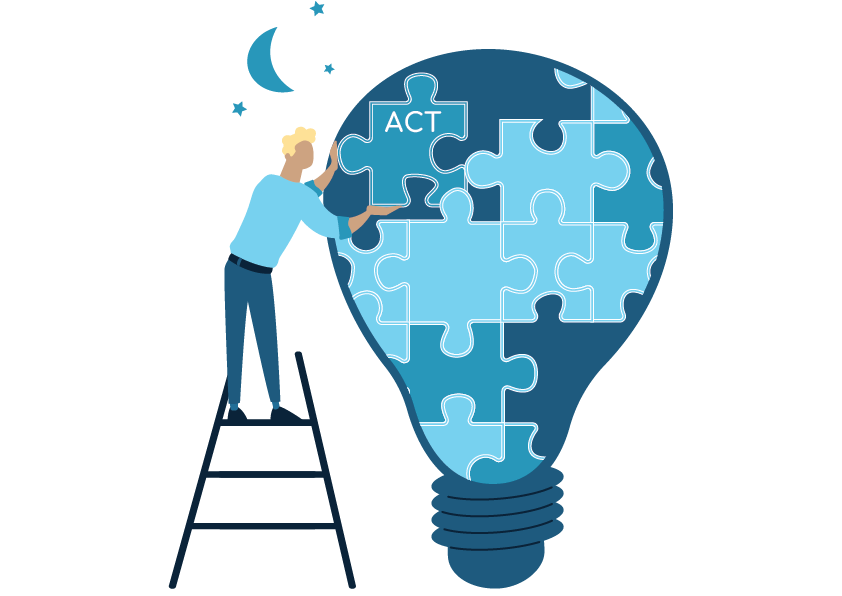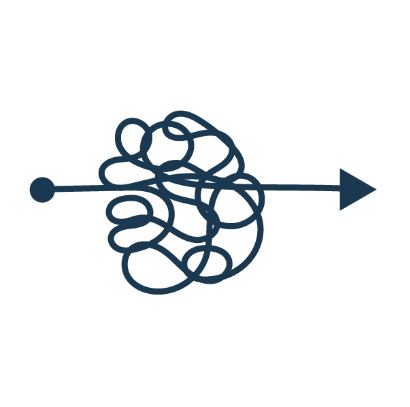Acceptance & Commitment Therapy: The Tender Sleep Approach
How ACT understands the cause of difficulty sleeping
As humans, we have a natural ability to solve difficult problems. You've likely experienced countless situations where you've successfully solved challenges in your life.
When sleep becomes an issue, it's natural to approach it with the same problem-solving mindset, trying various strategies to fix it.
Unfortunately, this tactic often doesn't help. Despite our best efforts, sleep may not improve - and can even worsen. Sleep difficulties are like quicksand: the harder you struggle, the more stuck you can become.
Often, there's no obvious reason why you can't sleep, especially when it seems effortless for others. This uncertainty increases craving for sleep, which ironically can push it even further away.
We may then become fixated on sleep, feeling anxious, frustrated, or even hopeless about it. For some, this ongoing struggle can negatively affect the other things in life that matter most. A scenario like this is entirely normal and very common.
Importantly, ACT doesn't focus on why your sleep problems started; instead, it emphasises practical steps you can take right now.
How ACT helps sleep
Sleep issues often start with challenging life events but can quickly become problems of their own, leading to anxiety and seeking quick fixes, which rarely help in the long run.
ACT helps by identifying unhelpful sleep-related behaviours and providing skills for managing difficult nighttime thoughts and feelings. Ultimately, ACT shifts your focus away from sleep worries towards what truly matters in life, allowing sleep to become more natural again.
ACT focuses on the following to help sleep:
Becoming aware of the thoughts and feelings affecting your sleep as they come and go and gently moving your focus to the present moment.
Making room for difficult emotions at night, rather than struggling to remove or avoid them. Learning to tolerate them at night.
Pursuing what you value in life, despite how insomnia makes you feel, reducing the control it has over you. Focusing on making the most of each day.
The ACT Hexaflex
The Hexaflex diagram below encapsulates the key principles of how ACT addresses sleep issues.
Through ACT coaching you’ll learn to apply these elements towards your sleep.
If you feel unsure about these principles, which is normal, through coaching they’ll become more accessible.
What ACT is not
A miracle cure
Everyone is different and so there’s no guarantee that any one approach will work for everyone.
A complicated method
ACT is accessible to most adults and isn’t about your past or following any strict rules or understanding any complex theory.
About meditating
ACT is a flexible approach that helps people in many different ways and a meditation practice isn’t typically involved.
Sleep hygiene advice
Typical advice for sleep usually fails to help many individuals and so ACT offers something different.
Scientific evidence for ACT?
ACT is endorsed by the UK & US governing health authorities, NICE (UK) and HHS (US), as an effective way to help sleep.
✔ Clinically validated
✔ No side effects
✔ Evidence based
✔ Drug free approach
✔ Long lasting results
✔ Benefits to wellbeing beyond better sleep
There are over 900 randomised control trials and over 300 systematic reviews showing that ACT is effective at helping a wide range of mental and physical health conditions, such as constant poor sleep (chronic insomnia), depression, anxiety, work stress and chronic pain.
-
If you would like to access more evidence it can be found here:













